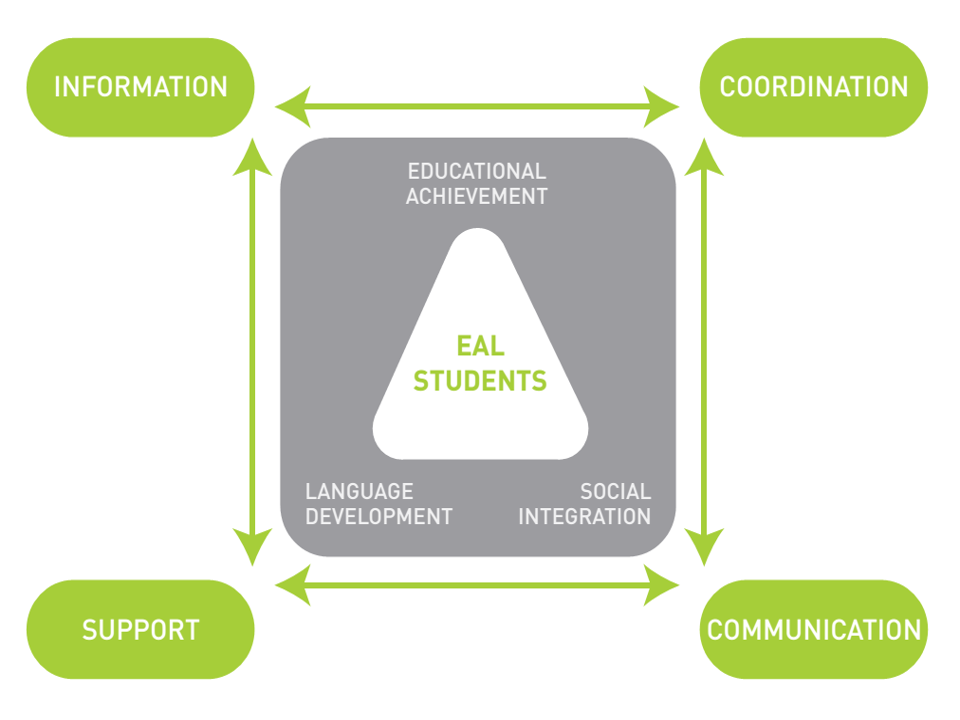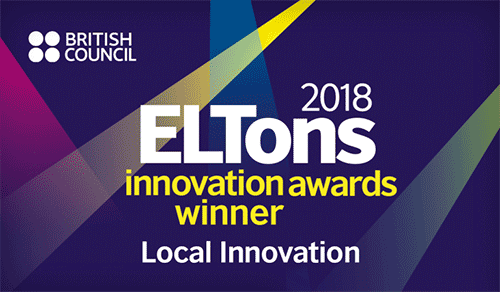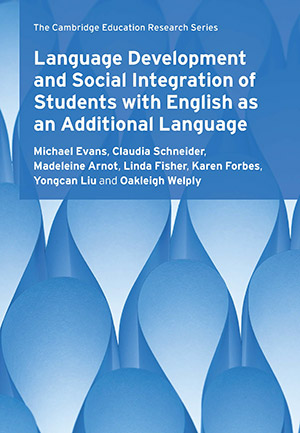Cambridge English as an Additional Language (CamEAL) Research Programme
Cambridge English as an Additional Language (CamEAL) Research Programme started with a research partnership between the University of Cambridge, Anglia Ruskin University and The Bell Foundation. The programme has been set up to investigate the schooling experience of children with English as an Additional Language (EAL) in the East of England and aims to improve the educational outcomes of these children.
According to the data from School Census, the number of EAL children in England has reached over 1.5 million, with 21.2% of primary and 16.6% of secondary students in all state-funded schools learning English as an additional language (Department for Education, 2018). It is therefore important to develop a research base to inform our understanding of the support and policy needed to ensure that all students fulfil their potential.
The research programme brings together a multi-disciplinary team of researchers with expertise in linguistics, sociology, education, assessment, social policy and migration studies. It aims to develop an understanding of how EAL provision works in different primary and secondary school contexts in the East of England and how this impacts on the educational achievement, language development, and social integration of EAL students.
Projects and Research
Phase I: School Approaches to the Education of EAL Students: Language Development, Social Integration and Education Achievement
Professor Madeleine Arnot, Dr. Claudia Schneider, Dr. Michael Evans, Dr. Yongcan Liu, Dr. Oakleigh Welply, Deb Davides-Tutt
Phase II: The Education of Socially Disadvantaged EAL Students in UK Schools
Dr. Michael Evans, Dr. Claudia Schneider, Professor Madeleine Arnot, Dr. Linda Fisher, Dr. Yongcan Liu, Dr. Oakleigh Welply, Dr. Karen Forbes, Dr. Mei Hu
Phase III: The EAL Assessment Framework for Schools (Primary and Secondary)
Dr. Michael Evans, Professor Constant Leung, Dr. Neil Jones, Dr. Yongcan Liu
Phase IV: Monitoring the Use of EAL Assessment Framework for Schools
Dr. Michael Evans, Professor Constant Leung, Dr. Yongcan Liu
Phase V: The Principles of Assessing EAL in International Contexts
Dr. Michael Evans, Professor Constant Leung, Dr. Yongcan Liu
Phase VI: EAL Access for Exam Papers
Dr. Michael Evans, Dr. Yongcan Liu, Katherine Soloman
Outputs and Impact
The research approach involves the development and evaluation of a number of case studies, through survey, interviews with school staff, EAL pupils and their parents and non-EAL students, classroom observations and learning activities. The findings of the research are expected to make significant contributions to the development of EAL practice in schools.
I. 'Systemic EAL Triangle': A Whole-School Child-Centred Approach to EAL Provision
The Cambridge EAL Research Programme is based on what we call the Systemic EAL Triangle which places EAL children in the centre of the whole school system and examines three dimensions of their learning and development, i.e. 'language development', 'social integration' and 'educational achievement'.

Liu, Y., & Evans, M. (2016). Multilingualism as legitimate shared repertoires in school communities of practice: Students' and teachers' discursive constructions of languages in two schools in England. Cambridge Journal of Education, 46(4): 553 - 568. DOI: 10.1080/0305764X.2015.1091441
Arnot, M., Schneider, C., Evans, M., Liu, Y., Welply, O., & Davies-Tutt, D. (2014). School approaches to the education of EAL students: Language development, social integration and achievement. Cambridge: the Bell Foundation.
II. 'EAL Assessment Framework for Schools': A Curriculum-Embedded Assessment Tool for Promoting Student Learning
Winner of British Council 2018 ELTons Award for Local Innovation, award ceremony
EAL Assessment Framework for Schools (Primary and Secondary)

III. Language Development and Social Integration of Children with English as an Additional Language

Publications and Dissemination
Reports and Seminars
British Council Seminar
Bell Foundation Research Seminar
Second Language Education Group Seminar Series
Phase 1
EALead Project Executive Summary
EALead Project Full Report
British Council Seminar (Session 1)
British Council Seminar (Session 2)
TES Interview on migrant children (28 July 2017)
Phase 2
Language Development and School Achievement Executive Summary
Language Development and School Achievement Full Report
British Council Seminar
Phase 3
The Guiding Principles of EAL Assessment
Naldic Presentation
Naldic Workshop
Publications
Leung, C., Evans, M., Liu, Y. (in press). English as an additional assessment framework: Filling a void in policy and provision in school education in England. Language Assessment Quarterly.
Evans, M., Jones, N., Leung, C., & Liu, Y. (2019). The EAL Assessment Framework for Schools (2nd ed.). Cambridge: the Bell Foundation.
Evans, M., Schneider, C., Arnot, M., Fisher, L., Forbes, K., Liu, Y., & Welply, O. (2020). Language development and social integration of students with English as additional language. Cambridge: Cambridge University Press.
Evans, M., Fisher, L., Forbes, K., & Liu, Y. (2019). The form and functions of newcomer EAL students' speech in English: Patterns of progression and communication in semi-structured interview dialogue. Language and Education, 33(1), 18-34. DOI: 10.1080/09500782.2018.1445756
Leung, C., Davidson, C., East, M., Evans, M. Green, T., Liu, Y., Hamp-Lyons, L., & Purpura, J. (2018). Using assessment to promote learning: Clarifying constructs, theories and practices. In J. Davies & J. Norris (eds.), Useful assessment and evaluation in language education. Washington DC: Georgetown University Press.
Evans, M., & Liu, Y. (2018). The unfamiliar and the indeterminate: Language, identity and social integration in the school experience of newly-arrived migrant children in England. Journal of Language, Identity & Education, 17(3), 152-167. DOI: 10.1080/15348458.2018.1433043
Evans, M., Jones, N. Leung, C., & Liu, Y. (2018). The EAL Assessment Framework for Schools (1st ed.). Cambridge: the Bell Foundation.
Schneider, C., & Arnot, M. (2018). Transactional school-home-school communication: addressing the mismatches between migrant parents’ and teachers’ views of parental knowledge, engagement and barriers to engagement, Teaching and Teacher Education, 75: 10-20. DOI: 10.1016/j.tate.2018.05.005
Schneider, C., & Arnot, M. (2018). An exploration of school communication approaches for newly arrived EAL students: applying three dimensions of organisational communication theory. Cambridge Journal of Education, 48(2): 245-262. DOI: 10.1080/0305764X.2017.1329399
Liu, Y., Fisher, L., Forbes, K., and Evans, M. (2017). The knowledge base of teaching in linguistically diverse contexts: 10 grounded principles of multilingual classroom pedagogy for EAL. Language and Intercultural Communication, 17(4), 378-395. DOI:10.1080/14708477.2017.1368136
Liu, Y., & Evans, M. (2016). Multilingualism as legitimate shared repertoires in school communities of practice: Students' and teachers' discursive constructions of languages in two schools in England. Cambridge Journal of Education, 46(4): 553 - 568. DOI: 10.1080/0305764X.2015.1091441
Evans, M. Schneider, C., Arnot, M., Fisher, L., Forbes, K. Hu, M., & Liu, Y. (2016). Language development and school achievement: Opportunities and challenges in the education of EAL students. Cambridge: the Bell Foundation.
Evans, M., Jones, N., Leung, C., & Liu, Y. (2015). EAL assessment and evaluation framework. NALDIC Quarterly, 15(4), 4-9.
Arnot, M., Schneider, C., Evans, M., Liu, Y., Welply, O., & Davies-Tutt, D. (2014). School approaches to the education of EAL students: Language development, social integration and achievement. Cambridge: the Bell Foundation.
Enquiries
Dr. Michael Evans (mje1000@hermes.ac.uk), Faculty of Education, University of Cambridge
Dr. Yongcan Liu (yl258@cam.ac.uk), Faculty of Education, University of Cambridge
Diana Sutton (Diana.Sutton@bell-foundation.org.uk) and Nicola Kidston (Nicola.Kidston@bell-foundation.org.uk)
The Bell Foundation, Hillscross Red Cross Lane, Cambridge CB2 0QU
e-mail: info@bell-foundation.org.uk
Tel: 01223 275567
Twitter: twitter.com/#!/BellFoundation

